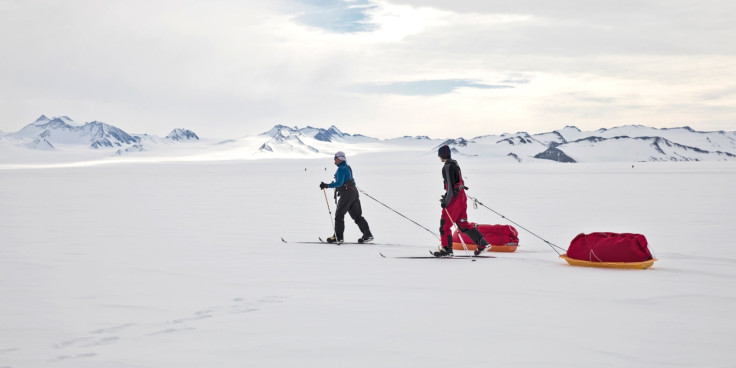Father and son embark on world's first expedition to the South Pole using only renewable technology
Environmental champion, who was first person to walk to both poles, uses Antarctic trek as green wake-up call.
"Thirty years ago, I was the first person in history perhaps stupid enough to walk to the North and South Poles," renowned British explorer Robert Swan, 61, tells IBTimes UK. "I had no intention ever in my life of ever walking anywhere cold again - this was definite."
But that is exactly what he is going to do.
The two trips took a heavy physical toll, leaving him with smashed-up knees and hips and eye damage because of harmful radiation passing through the hole in the ozone layer above Antarctica.
Despite this, Swan is embarking on another adventure to the southernmost continent - this time accompanied by his son Barney, 23 - in what is planned as the world's first polar expedition powered entirely by renewables.
What could have convinced Swan to undertake an eight-week trek through Antarctica, one of the harshest environments on Earth, at the age of 61?
"Barney persuaded me - much against my will at the time, I might say - that we really should make an effort to inspire people, especially young people, on the whole issue of their energy use - how are they using energy, how are they thinking about energy.
"And he convinced me that the best way of doing that was to walk 600 miles to the geographic South Pole in a matter of days. As we all know, over the last few years, climate change and the issue of sustainability has suddenly risen up."
Their South Pole Energy Challenge is designed to showcase the power of renewables.
"Increasing the use of renewable sources of energy is essential to reducing CO<sub>2 emissions," Swan says. "By putting these clean energies to the test in Antarctica, Barney and I want to prove that they can be developed for use anywhere and therefore play a crucial part in helping the planet transition to a lower-carbon future."
Back in 1985, Robert embarked on his first trip to the geographic South Pole - a 900-mile expedition which still stands as the longest unassisted walk ever made. This journey left an indelible mark on him and sparked a lifelong pursuit to protect the Earth's most pristine environment.
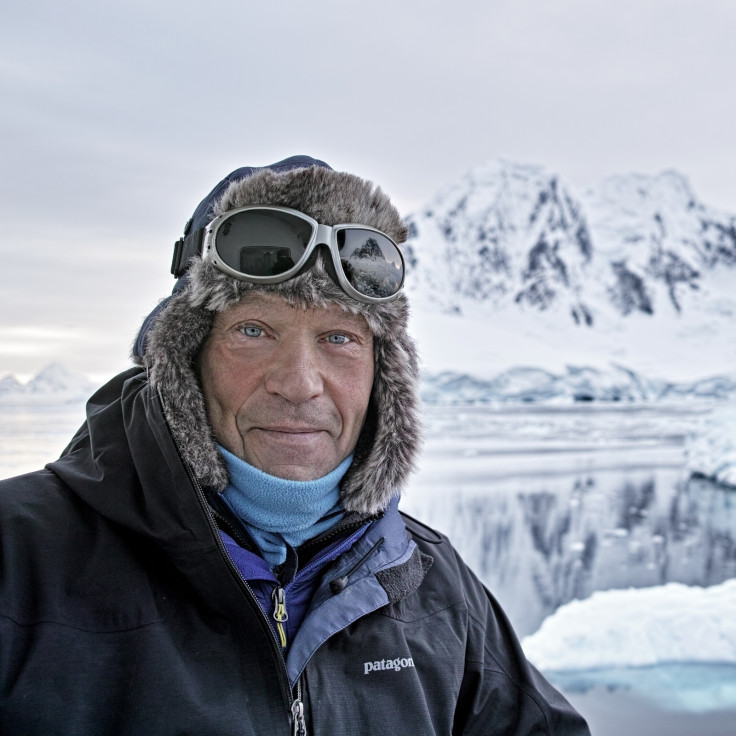
During this initial voyage, he relied on jet fuel to cook his food, melt ice into drinking water and keep him warm in temperatures of -40C.
Now the expedition team, which includes guide Martin Bennett and filmmaker Kyle O'Donoghue, will be utilising state-of-the-art renewable technologies designed to ensure that the trip is carbon neutral.
Nasa-designed, solar-powered ice melters, which will one-day be used on Mars, will provide them with drinking water on sunny days, while solar-charged lithium batteries will power all their devices. But as Swan points out, there aren't too many sunny days when you're walking to the South Pole.
"On many days in Antarctica I couldn't see you so the other renewable energies aren't going to work all the time," he explains. "So Barney and I will be relying on advanced biofuels to keep us warm and keep us fed on those tough days." These biofuels are made from various kinds of waste biomass and have been designed to operate in temperatures as low as -60°C.
On that first trip, Swan navigated using only a sextant and the sun, a strategy that risked missing the pole altogether. "It was hell: one slip, one mistake, you were dead. We had no radios, no GPS, no back-up, no communications, nothing. We walked 900 miles in 70 days and we either got there or we didn't."
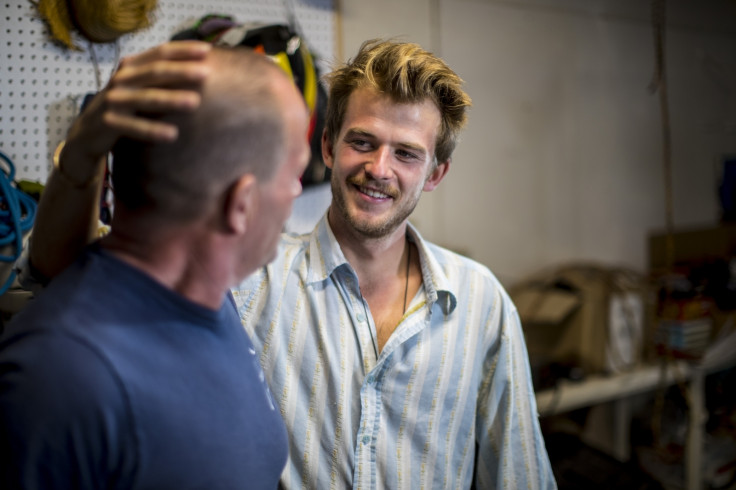
Communications have since advanced significantly.
"Now we are going to be able to get messaging out, although it's limited because we are in Antarctica. And if things get tough and awful and we do decide that we want to come home, we have the ability to ring up and an aircraft can come and pull us out. Not that we're going to use that but it's great to have that feeling. It was so isolating 30 years ago, I think it nearly drove me insane."
To prepare for his original trek, Swan spent nine months in Antarctica "staring at the snow". But this time, father and son went through a gruelling training process in California - where the family live - in order to be physically prepared.
This involved high-altitude cycling and pulling heavy tires up and down hills, "frightening American hikers," Robert jokes. "They were always wondering why these two very strange Englishman were pulling tyres up a hill."
His son even convinced him to try yoga - something which helped the explorer ease some of the physical pain he had acquired through years of pushing his body to the limit and give him the confidence to go ahead with the expedition.
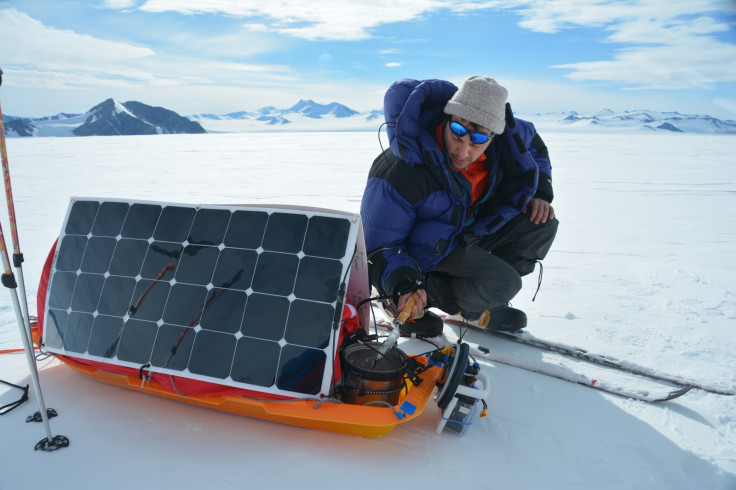
"It's going to hurt me because I'm not 23, I'm 61," Swan says. "However, I feel I can handle it. I know what's ahead more than they do and that's good and bad. But I'm a great believer that if you can do a mile you can do another 599 miles and that's what keeps me going.
"When one thinks of the Scotts and the Shackletons and the Amundsens, people in their crummy shoes and sealskin sleeping bags that were full of ice, often if I'm having a bad day, I think of them and I tell myself - I can do this."
The team will be on the move for nine hours a day on cross-country skis, pulling everything they have with them on sleds weighing nearly 100kg. Their supplies will include rations from "totally sustainable sources" and they will need to consume more than 5,000 calories every day to survive the freezing temperatures.
Swan junior, who has certainly inherited his dad's sense of adventure, stresses there is no room for error.
"It's a place that really wants you dead. You have to be very present. If you're lighting the stove and you screw up, you set fire to the tent. The whole expedition hangs in the balance of a lighter flick, or putting on your boot wrong and twisting your ankle, or walking off to take a pee in the night and you fall into a crevasse - all these little things you have to be so aware of."
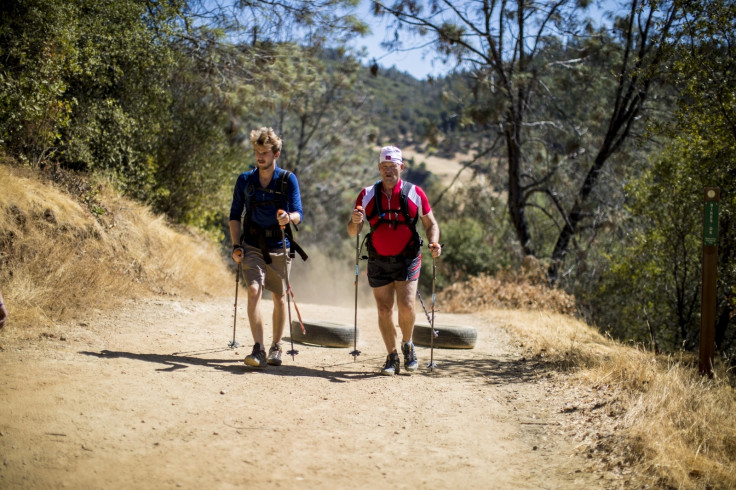
Meticulous preparation was also key.
"You've got to think of everything. Because if its minus 40 and blowing 50 knots, and your glove decides to whip off, in five minutes the water crystals in your hands are going to start to freeze, and a week from that moment you're going to have a black hand."
He grew up off-grid in north Queensland, Australia, an experience which taught him the value of energy and the need to reduce our collective impact on the Earth. He thinks environmental issues need to be injected with more positivity and hopes that is something the expedition will achieve.
"As a young person, I feel like there's a lot of negativity surrounding what's going on with the climate. There's a lack of positive messages out there. And with all respect to Al Gore, I think dad and I have really been advocates for moving away from the 'Inconvenient Truth' to convenient solutions."
For the pair, one of the motivations for planning the expedition was to highlight the issue of the energy transition – the long-term structural change in our energy systems which will see a shift away from fossil fuels towards more sustainable, renewable and cleaner energy sources.
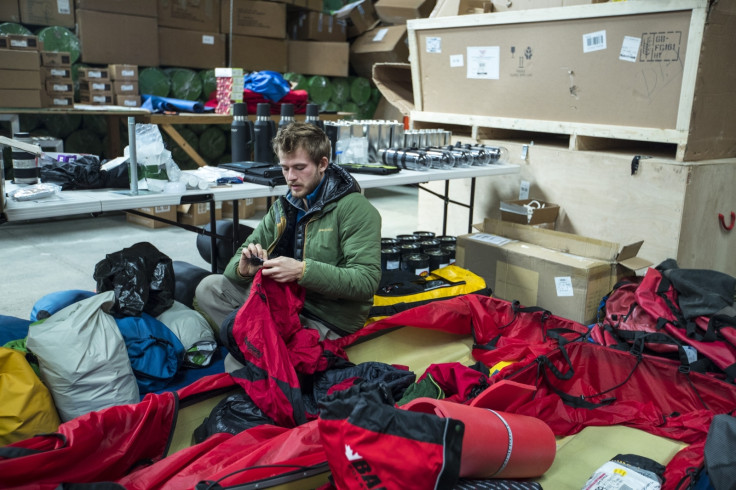
"A lot of Barney's generation think that the future of energy is just going to be about a bit of wind power, a bit of solar power and it'll all be clean. Well, we'll get there, but the transition to get there requires what we call the energy mix - because a jumbo jet aeroplane is not taking off on solar panels for a really long time. I believe that our expedition is a great example of this mix."
In 1984, he founded the 2041 Foundation - an organisation dedicated to preserving the Antarctic and named after the year when the moratorium on Antarctic mining is due to be renegotiated. Barney Swan coordinates expeditions and ventures for the foundation.
"What we're doing now is really a micro example of what we're going to be doing in the future," he says. "We're going to be working with fantastic companies who are literally dragging CO<sub>2 out of the air and turning it into limestone, or promoting really small solutions like ringing up your utility provider and demanding green energy, or maybe eating one less meat meal a week.
"We're trying to be an active proponent of pushing those things and inspiring people to take responsibility and consider their CO<sub>2, consider how they're using energy and to actually be a part of active solutions to make a greener tomorrow now."
"There is no silver bullet solution to managing the challenges of climate change," his father concludes. "And we must meet this challenge through collaboration amongst all players in society – governments, entrepreneurs and industry – to provide a mixture of cleaner energy solutions as we work towards a low-carbon future.
"The last great exploration left on Earth is to survive on Earth."
